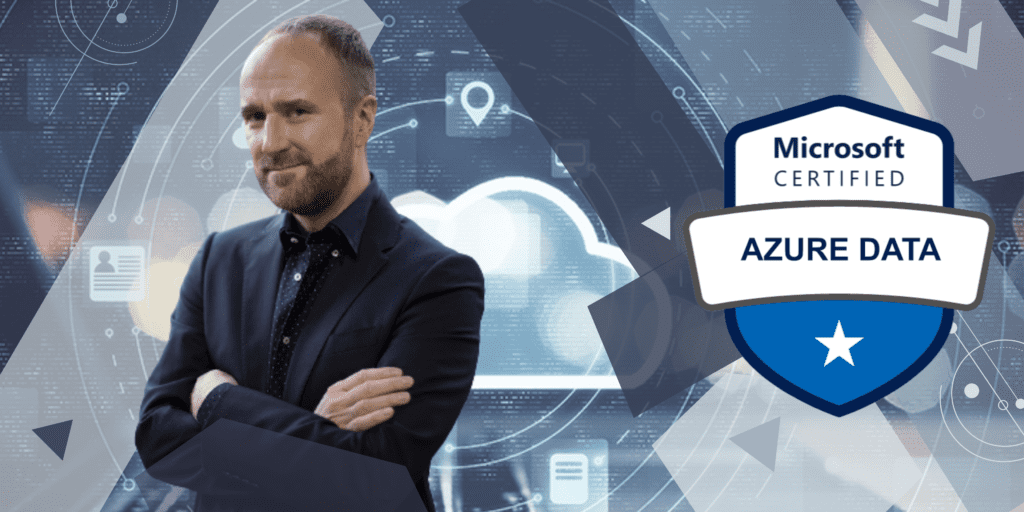
Microsoft Azure Data Fundamentals
In this training you will learn foundational knowledge about data services in the Microsoft Azure cloud. The training will introduce you to core data concepts such as relational and non-relational data, big data, and data analytics. You will explore data services, provision and deploy databases, and query data through cloud data solutions with Microsoft Azure. This training prepares you for the Azure Data Fundamentals exam and certification.
Here’s What You’ll Get

Live Training Days

Lab Assignments

Azure Sandbox

Practice Exam

Exam Voucher

Day Lab Access
Training Details
This training will get you fully up to speed with data services in the Microsoft Azure cloud.
You will learn all about relational and non-relational data, big data, data engineering and data analytics. You’ll also learn how Azure cloud services support data workloads, and how you can easily get started building a robust data infrastructure that harnesses cloud-scale power.
As you progress through the training material, you will explore data services, provision and deploy relational and non-relational databases, and run queries to analyze business data.
As part of this training, you’ll receive an Azure Pass with credits to spend on your own cloud services. The pass is valid for 15 days.
Name: DP-900: Microsoft Azure Data Fundamentals
Format: Classroom
Content: training manual, online lab environment, Azure cloud credit and an exam voucher
Requirements: a laptop with a web browser. Chrome or Edge is recommended.
Support: Live classroom support
Associated certification: Microsoft Azure Data Fundamentals
Training Curriculum
Explore core data concepts
How is data defined and stored
Relational and non-relational data
Data workloads
Batch and streaming data
Roles and responsibilities
Data job roles
Common tasks and tools
Relational data
Characteristics of relational data
Tables, indexes and views
Relational data workloads
Non-relational data
Characteristics of non-relational data
Types of non-relational data
NoSQL databases
Data analytics
Data ingestion & processing
Data visualization
Data analytics
Relational data services
Relational data services in Azure
Provisioning & deploying options
Querying relational data
Provisioning & deploying
Provisioning relational data services
Configuring relational data services
Connectivity issues
Data security
Querying relational data
The SQL language
Querying relational data
Lab exercises
Deploying Azure SQL Database
Querying Azure SQL Database
Non-relational data services
Azure Table Storage
Azure Blob Storage
Azure File Storage
Azure CosmosDB
Provisioning & deploying
Provisioning non-relational data services
Configuring non-relational data services
Connectivity issues
Data security
Managing non-relational data stores
Managing CosmosDB
Managing Azure Storage
Lab exercises
Querying Azure CosmosDB
Querying Azure Blob Storage
Querying Azure File Storage
The Data Warehouse
Data warehouse concepts
Data warehouse services
Data warehouse architecture
Working with a data warehouse
Data ingestion in Azure
Data ingestion
Azure Data Factory
Loading data in a data warehouse
Data storage & processing
Azure data analytics
Azure Synapse Analytics
Power BI
Power BI services & applications
Power BI examples
How to create compelling visuals
Request A Classroom Training
Feel free to request a classroom training with me by filling in this contact form. I will contact you asap to discuss your business requirements, team size and preferred location of the training to make sure your team members get what they need.
A typical classroom training can usually be scheduled within 30 days and can accommodate up to 15 people on-site or online.
Looking For Something Else?
CHECK OUT MY OTHER MICROSOFT FUNDAMENTALS TRAINING COURSES
Is this classroom training not what you’re looking for? Then please check out my other Microsoft Fundamentals training courses.
No Results Found
The page you requested could not be found. Try refining your search, or use the navigation above to locate the post.

Adam Lindqvist
Frequently Asked Questions
- Classroom Training
- Microsoft Training
- Online Training
- Misc
